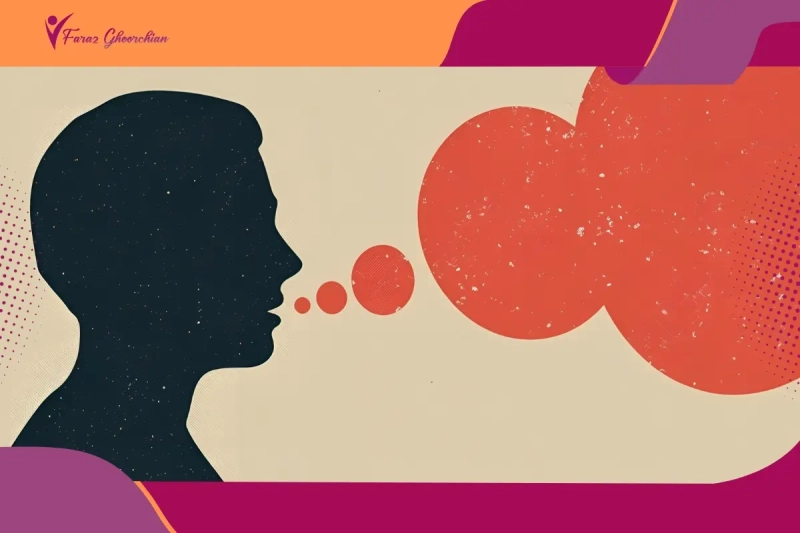Discover the real effects of stress at the workplace, from health risks to job performance, and learn practical ways to manage and reduce stress effectively.
- 1. Introduction: Why Workplace Stress Matters
- 2. Understanding Workplace Stress
- 3. The Negative Effects of Stress in the Workplace
- 4. The 5 Impact of Workplace Stress on Employees
- 5. Effects of Stress on Job Performance
- 6. Psychological Effects of Stress in the Workplace
- 7. Physical Effects of Stress in the Workplace
- 8. Positive Effects of Stress in the Workplace
- 9. Managing Stress at the Workplace
- 10. Conclusion: A Balanced Approach to Workplace Stress
Introduction: Why Workplace Stress Matters
The effects of stress at the workplace reach far beyond temporary tension or pressure. When unmanaged, they influence productivity, teamwork, and even the overall health of employees. Experts describe the definition workplace stress as the physical and emotional response that arises when job demands exceed personal resources. The consequences of workplace stress appear in lower concentration, rising absenteeism, and declining motivation. At the same time, the effects of job stress on physical and mental health can include fatigue, anxiety, and burnout, which weaken both performance and well-being. Understanding the causes of stress at the workplace helps organizations create healthier environments, while employees who recognize the negative effects of stress in the workplace are better prepared to manage it effectively and maintain long-term balance.
Understanding Workplace Stress
Everyone has felt it at some point: sitting at a desk, staring at the screen, and realizing your heart is racing even though you are only answering emails. That is one of the clearest signs of the effects of stress at the workplace. The definition workplace stress is simple on paper. It is the pressure that rises when job demands outweigh the resources a person has. But in real life it feels heavier, almost like carrying a load that keeps getting bigger each week.
The causes of stress at the workplace are rarely dramatic. It might be the endless deadlines, unclear instructions, or the constant worry about making mistakes. Over time, this tension doesn’t just stay in the mind. Many employees begin to ask themselves What is anxiety, as stress creates feelings of unease and persistent worry that disrupt daily focus. The psychological effects of stress in the workplace creep in as low mood, restlessness, or losing interest in tasks, while the physical effects of stress in the workplace show up as headaches, back pain, or sleepless nights. The consequences of workplace stress reach further than people expect: teamwork suffers, decisions take longer, and motivation fades. Ask anyone how does stress affect work performance, and they will tell you. It makes everything slower and far less satisfying. Noticing the negative effects of stress in the workplace early gives both employees and employers a real chance to turn things around.
The Negative Effects of Stress in the Workplace
When people talk about the effects of stress at the workplace, it often sounds abstract, but in reality it shows up in everyday moments. A sharp reply in a meeting. A colleague who calls in sick more often. A once-energetic worker staring blankly at their screen. These are not isolated incidents; they are signals of the negative effects of stress in the workplace slowly building up.
Some of the consequences of workplace stress are easy to notice, others take longer:
- Work slows down, and mistakes that never used to happen start creeping in
- Motivation fades, and projects feel more like a burden than an opportunity
- Teams lose their rhythm, with small conflicts turning into bigger tensions
- The work stress effects on health appear as constant tiredness, headaches, or restless nights
- On the emotional side, the psychological effects of stress in the workplace include anxiety, mood swings, or withdrawal from colleagues
If you ask employees how does stress affect work performance, many will give the same answer: it drains focus and leaves them mentally foggy. Over time, the effects of job stress on physical and mental health chip away at both the individual’s well-being and the company’s ability to thrive.
The 5 Impact of Workplace Stress on Employees
The effects of stress at the workplace can’t be measured only by statistics or reports. You notice them in small, everyday ways. Someone who used to be cheerful avoids conversations. A worker who once finished tasks quickly now struggles to focus. These little shifts tell the story of how stress changes not just one person but the entire rhythm of a team. The 5 impact of workplace stress are worth looking at closely because they build up quietly and affect almost every part of working life.
- Productivity slipping: work that used to take an hour stretches into two. This is one of the most visible effects of stress on job performance.
- Burnout creeping in: constant strain wears people down. The effects of job stress on physical and mental health include fatigue, poor sleep, and the sense of being drained before the day even starts.
- More errors: deadlines and pressure cloud judgment. It’s a daily reminder of how does stress affect work performance in real time.
- Team tension: stress changes communication. Misunderstandings grow, showing the negative effects of stress in the workplace on relationships.
- Lost creativity: instead of fresh ideas, stress narrows thinking. The psychological effects of stress in the workplace make innovation harder.
These consequences of workplace stress rarely explode overnight. They build slowly, and by the time they are obvious, damage has already begun. Recognizing them early is the first step to protecting both people and performance.
Effects of Stress on Job Performance
The effects of stress at the workplace are easiest to notice when performance begins to shift. At first, it might be small: an employee staring at the same report for an hour, or a usually sharp colleague forgetting simple details. These changes don’t always look serious, but over time the effects of stress on job performance become obvious, dragging down both quality and consistency.
Some clear patterns often appear:
- Focus fades quickly: distractions grow stronger, a classic sign of the consequences of workplace stress.
- Tasks take longer: what once felt simple now stretches into hours, showing clearly how does stress affect work performance.
- Mistakes increase: under pressure, judgment slips, and the negative effects of stress in the workplace show up in errors.
- Ideas dry up: stress narrows perspective, weakens problem-solving skills, and the psychological effects of stress in the workplace block creativity.
- Collaboration suffers: patience runs out, and the effects of job stress on physical and mental health make teamwork harder.
These consequences of workplace stress don’t usually explode overnight. They creep in slowly, changing the way people work until both the employee and the company feel the cost.
Psychological Effects of Stress in the Workplace
The effects of stress at the workplace often start in the mind long before they ever show up in the body. People notice it in small ways: trouble sleeping because they keep replaying a conversation, or sitting at a desk but feeling too restless to concentrate. These are the early psychological effects of stress in the workplace, and if they continue, they slowly shape how a person thinks, reacts, and even relates to others. In many cases, prolonged stress can also lead individuals to question their mood and mental state, raising concerns such as What is Depression and how closely it connects with workplace pressure.
Some of the common signs are:
- Rising anxiety that makes choices harder, a direct result of the consequences of workplace stress
- Irritability or frustration during simple interactions, showing the negative effects of stress in the workplace
- Confidence slipping, where mistakes and pressure eat away at self-belief and add to overall work stress effects on health
- Pulling back from colleagues, a habit that deepens the effects of job stress on physical and mental health outside the office too
When people ask how does stress affect work performance, the answer often begins here. Mental strain doesn’t stay hidden; it slowly drains focus, energy, and creativity until daily work feels heavier than it should.
Physical Effects of Stress in the Workplace
The effects of stress at the workplace often show up in the body before people even realize what is happening. A tight jaw during meetings, a back that aches after sitting too long, or constant tiredness that no amount of coffee fixes. These are early signs of the physical effects of stress in the workplace, and they tend to get worse if the pressure never lets up. Many health experts describe this as part of the broader Effects of Stress on Your Body, where ongoing strain impacts energy, immunity, and overall well-being.
Some of the ways this appears include:
- Recurring headaches or tense muscles, small reminders of the deeper consequences of workplace stress
- Digestive troubles that make eating uncomfortable, connected directly with work stress effects on health
- Fatigue and restless nights, proof of how the effects of job stress on physical and mental health overlap
- Catching colds more often, a clear warning of the negative effects of stress in the workplace on the immune system
Anyone asking how does stress affect work performance only has to look here. A body that is tired, sick, or in pain simply cannot perform at its best.
Positive Effects of Stress in the Workplace
People usually think of the effects of stress at the workplace as harmful, and most of the time they are. But not every form of stress is destructive. In short bursts, pressure can act as a spark. It sharpens attention, pushes people to finish tasks, and sometimes even brings teams closer. These moments show the positive effects of stress in the workplace, which exist alongside the risks.
Some examples often seen in real settings are:
- Sharper focus when a deadline approaches, a reminder that the consequences of workplace stress are not always negative
- Motivation rising as goals come closer, which can help balance the usual negative effects of stress in the workplace
- Resilience building, as employees discover they can adapt under pressure
- Fresh solutions, since the psychological effects of stress in the workplace sometimes trigger creativity instead of blocking it
- Stronger teamwork, where shared challenges reduce distance between colleagues
So while many ask why do we fear stress, the truth is it can also act as fuel. In the right amount, it encourages growth and prepares people for bigger challenges.
Managing Stress at the Workplace
The effects of stress at the workplace are something most employees know too well. A heavy workload, unclear instructions, or even tension with colleagues can build until it affects both mood and performance. While stress can’t be erased, it can be handled. The real challenge is learning the best ways of managing stress at the workplace before it harms health or productivity.
For individuals, the little steps matter. A walk during lunch, choosing better sleep habits, or even pausing to breathe deeply at the desk can ease the work stress effects on health. These habits also protect against the stronger psychological effects of stress in the workplace, like anxiety or loss of focus.
Companies have just as much responsibility. Clear communication, fair deadlines, and recognizing effort all reduce the consequences of workplace stress. When leaders encourage balance and provide tools like flexible hours or access to counseling, employees are less likely to face the lasting effects of job stress on physical and mental health. This is especially important when workers are dealing with uncertainty or the fear of Job Loss and Unemployment Stress, which can intensify existing pressures. And when people wonder how does stress affect work performance, the answer is simple: with the right support, pressure can push employees forward instead of holding them back.
Conclusion: A Balanced Approach to Workplace Stress
The effects of stress at the workplace are real, but they do not have to control the future of employees or organizations. Stress will always exist in some form, yet the outcome depends on how it is managed. Ignoring the consequences of workplace stress leads to declining health, low motivation, and poor results. Recognizing the psychological effects of stress in the workplace and the work stress effects on health allows action before problems grow deeper. With practical routines, supportive leadership, and open communication, the negative effects of stress in the workplace can be reduced, while the occasional positive effects of stress in the workplace can be used to inspire focus and growth. A balanced approach protects well-being, improves resilience, and ensures lasting performance for both individuals and organizations.















